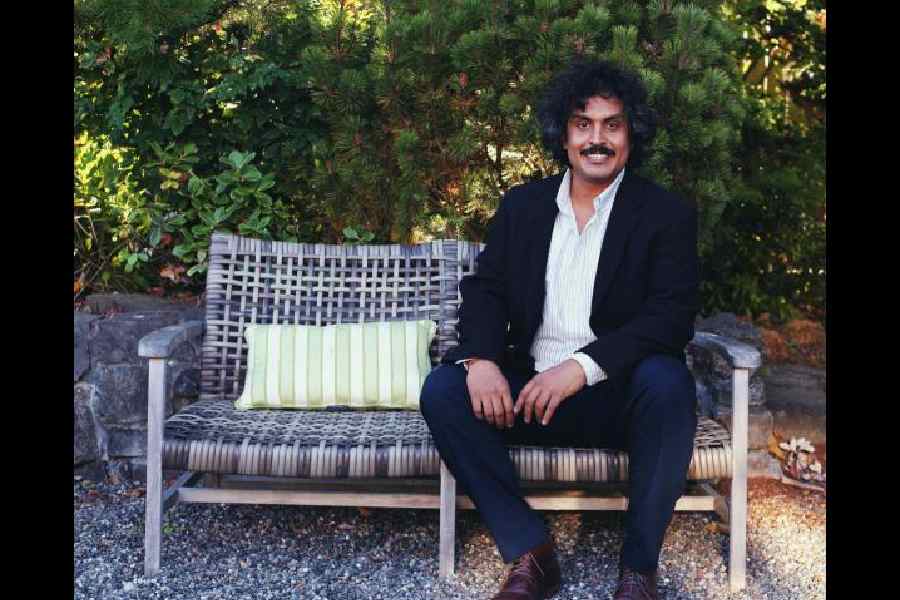All Living Things — Environmental Film Festival (ALT EFF), India's largest film festival dedicated to films about the environment, has grown exponentially in its fourth year. Today, the decentralised festival travels to Calcutta with a host of films to be screened at the Victoria Memorial premises from 11am. Among the stellar lineup this year are We Are Guardians, executive produced by Leonardo DiCaprio, Deep Rising, produced and narrated by Jason Momoa and the Dia Mirza-backed and narrated film No Water No Village. t2 chatted with festival director Kunal Khanna to know more.
What are the highlights of the festival this year?
About 400 films were submitted this year, which is twice as much as what we got last year. It's been really great to see wider interest, both from a filmmaker and also audience perspective. We have some incredible films made through the power of the community at the grassroots, telling really impactful stories of the good work that is happening at all levels of the environmental movement.
The programme itself is all-encompassing and we are capturing high-budget, big filmmakers and films, but also the ones that are at the other end of the spectrum. The teams that we are covering continue to get more and more diverse every year.
At the start of the year, we set ourselves the ambitious goal to have screenings in every state of India. Rather than having a festival in a certain location or a city, we wanted to bring these films and stories to as many people as possible and take away any barriers for viewers to having to travel.
We tried out this decentralised model and we were able to land in eight cities and towns last year with about 15 screenings. Based on that, we said: 'Why not go bigger this year?' We are going to be screening films in 22 states of the country. There are 15-odd screening events that are going to take place over the 10-day period, from Bombay to Pune to Goa, Calcutta to Guwahati. We will even screen in rural Odisha, Srinagar and Shillong.
We are capturing those urban audiences that are perhaps already engaged with the environment, but not necessarily have the right kind of information. We are trying to get the environmental movement out of the echo chambers that they usually tend to exist in and go far and wide to engage as many people as possible because our goal is to drive action as a result of this awareness that comes about through the films and the programmes. We are now one of the biggest decentralised film festivals in the world. We are officially doing an opening night where we will be having an award ceremony. There will be a red carpet and all those aspects of a film festival that one would expect.
What have been the biggest challenges of putting together this festival over the last four years?
Awareness is the first step towards action. Initially, the challenge was to even try to explain what an environmental film is. But that is now becoming easier with these macro-level changes. I will not spend too much time talking about the financial and the business model and how we keep the lights on. Those kind of challenges will always exist. For us, it's really about the creative change and also the wider acceptance, knowledge and awareness around the kind of films and content that we really focus on.
How much does having a powerful mainstream voice like Alia Bhatt, who is attached to the festival this year, benefit the movement?
It benefits us massively. Environmental film, and environmental consciousness more widely, still remain on the fringes, to a certain extent. There is a lot of discussion about it, but the masses are still not so bothered, to put it simply. And when a big voice like Alia Bhatt reaches the masses, it reaches the population that is not in the environmental echo chambers. The vision that Alia has with her Eternal Sunshine Productions and we have with our mission are in alignment and that allows her to be outspoken about what we are doing.
Also, in the next year or two, a lot more collaborations may come up. There are a lot of things that will unfold over the next couple of years and because of voices like hers, it will bring the festival to the attention of people who otherwise may not be engaged with it. Film stars and cricketers are what get the most number of people involved.
We want to be a platform that encourages, enables, supports and creates more opportunities for filmmakers capturing environmental stories and also bring forth environmental storytelling and content... maybe fiction, non-fiction, either way.
And when we work with voices like Alia's, it comes to the attention of young and upcoming filmmakers, who may say: 'Okay, Bollywood is not the only option.' Having support, both from a production art perspective and an individual, allows more people to really consider this as an option and take it up as a career. And that, in turn, enhances the overall environmental industry in the country.











